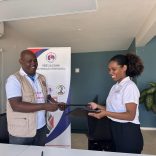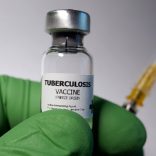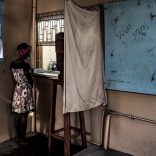Mozambique: MozYouth and Salesian Network join forces to promote youth employability
Mozambique to launch immunisation campaign as polio found in Malawi – AIM

File photo: UN News
Mozambique is planning to conduct an immunisation campaign following the detection of wild poliovirus in neighbouring Malawi – the first of its kind detected in Africa since 2016.
According to the World Health Organisation (WHO), polio emergency response teams in Malawi are ramping up disease surveillance after the country detected a case of wild poliovirus. In a statement, it stressed that “determining the extent of the risk and searching for any further cases are among the crucial steps for an effective response to halt the virus and protect children from its debilitating impact”.
Africa was declared and certified as free of indigenous wild polio in August 2020. However, laboratory analysis has shown that this new outbreak is linked to a strain that was circulating in Pakistan’s Sindh Province in 2019.
WHO has been working with the Malawian Ministry of Health to collect stool samples from contacts of the original patient along with measures to search for new cases. Once the lab analysis was complete, in February Malawi declared an outbreak for the first time since 1992.
Among the measures taken include taking samples from people suffering from acute flaccid paralysis to confirm whether poliovirus was present and identifying suitable wastewater locations to serve as environmental surveillance sites. People have been trained to collect samples and ship them for analysis.
The coordinator of the Global Polio Eradication Initiative, Dr Christopher Kamugisha, lamented that “Malawi is now considered a polio affected country. We are working tirelessly with the government and our GPEI partners to reverse this”.
He added that “the WHO African Region’s status as wild polio free remains intact. However, our work now is to quickly prevent any in-country spread of wild poliovirus and keep children safe”.
Poliovirus is highly contagious and mainly affects children under the age of five. It invades the nervous system and can cause total paralysis within hours. The virus is transmitted from person to person mainly through faecal matter or, less frequently, through contaminated water or food. While there is no cure for polio, the disease can be prevented by a safe, simple, and effective vaccine.
Mozambique was certified free of polio in 2016 following a meeting of the Africa Regional Certification Commission (ARCC) for Poliomyelitis Eradication.
The only two countries in the world where polio remains endemic are Pakistan and Afghanistan.












Leave a Reply
Be the First to Comment!
You must be logged in to post a comment.
You must be logged in to post a comment.